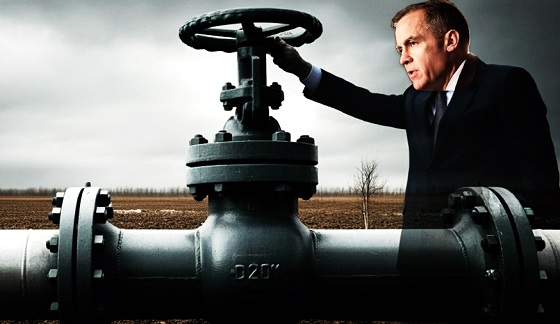2025 Federal Election
Alcohol tax and MP pay hike tomorrow (April 1)

The Canadian Taxpayers Federation is calling on all party leaders to stop a pair of bad policies that are scheduled to happen automatically on April 1: pay raises for members Parliament and another alcohol tax increase.
“Party leaders owe taxpayers answers to these two questions: Why do you think you deserve a pay raise and why should Canadians pay higher taxes on beer and wine?” said Franco Terrazzano, CTF Federal Director. “Politicians don’t deserve a raise while millions of Canadians are struggling.
“And the last thing Canadians need is another tax hike when they pour a cold one or uncork a bottle with that special someone.”
MPs give themselves pay raises each year on April 1, based on the average annual increase in union contracts with corporations with 500 or more employees.
The CTF estimates tomorrow’s pay raise will amount to an extra $6,200 for backbench MPs, $9,200 for ministers and $12,400 for the prime minister, based on contract data published by the federal government.
After tomorrow’s pay raise, backbench MPs will receive a $209,300 annual salary, according to CTF estimates. A minister will collect $309,100 and the prime minister will take home $418,600.
Meanwhile, the alcohol escalator automatically increases excise taxes on beer, wine and spirits every year on April 1, without a vote in Parliament. Alcohol taxes will increase by two per cent tomorrow, costing taxpayers about $40 million this year, according to Beer Canada estimates.
The alcohol escalator tax has cost taxpayers more than $900 million since it was imposed in 2017, according to Beer Canada estimates.
“Politicians are padding their pockets on the same day they’re raising beer taxes and that’s wrong,” Terrazzano said. “If party leaders want to prove they care about taxpayers, they should stop the MP pay raises.
“And if party leaders care about giving Canadian brewers, distillers and wineries a fighting chance against tariffs, it’s time to stop hitting them with alcohol tax hikes year after year.”
The CTF released Leger polling showing 79 per cent of Canadians oppose tomorrow’s MP pay raise.
2025 Federal Election
NDP’s collapse rightly cost them official party status

This article supplied by Troy Media.
 By Michael Taube
By Michael Taube
Official party status requires 12 seats. The NDP got seven. End of story
Rules are rules.
That, in a nutshell, is why the NDP wasn’t granted official party status in the House of Commons on Monday. Prime Minister Mark Carney and the
Liberals, to their credit, made the right decision.
Let’s examine why.
The 1963 Senate and House of Commons Act passed an amendment that gave an annual allowance to party leaders other than the prime minister and
leader of the Opposition. In doing so, the Canadian government had to establish what constitutes a “political party.” The definition they came up with was a sensible one: it had to have a “recognized membership of 12 or more persons in the House of Commons.”
This important amendment is still used today.
The NDP fell from 24 to a paltry seven seats in last month’s federal election. (There are a total of 343 seats in the House of Commons.) They finished with 1,234,673 votes, or 6.29 per cent, which was behind the Liberals, Conservatives and Bloc Québécois. Party leader Jagmeet Singh, who had represented the former Burnaby South riding since 2019, finished a distant third in the newly created Burnaby Central riding and resigned.
The NDP’s seven seats is well below the 12-seat requirement needed for official party status. This means Canada’s socialist alternative won’t be able to ask questions in the House of Commons and will lose out on money for research purposes.
Or, to put it another way, they’re plumb out of luck.
Hold on, some people said. They pointed out that the NDP’s seat count and popular vote only plummeted because many progressive voters backed Carney and the Liberals as the best option to counter U.S. President Donald Trump and his tariffs. They felt that the NDP’s long history as a champion for unions and the working class should count for something. They suggested there should be an exception to the rule.
Guess what? They’re wrong.
This is the worst election result in the party’s history. Even its predecessor, the Co-operative Commonwealth Federation (CCF), did marginally better in its first campaign. The CCF won seven out of 245 seats—and earned 410,125 votes, or 9.31 per cent—in the 1935 election. Party leader J.S. Woodsworth, who had represented the riding of Winnipeg North Centre as an Independent Labour MP since 1925, comfortably held his seat.
Meanwhile, this won’t be the first time they’ve ever lost official party status.
The NDP dropped from 43 to nine seats in the 1993 election. It was a dismal showing, to say the least. There was a suggestion at the time that then-party leader Audrey McLaughlin, the first woman to lead a party with political representation in Canada’s House of Commons, deserved a better fate. While the NDP certainly came closer to achieving the 12-seat requirement in this particular election, Prime Minister Jean Chrétien and the Liberals decided against granting them official party status.
Why? As I mentioned earlier, rules are rules.
Then again, British pilot Harry Day notably told his fellow flying ace Douglas Bader in 1931, “You know my views about some regulations—they’re written for the obedience of fools and the guidance of wise men.”
Does this mean that individuals and organizations who follow rules are, in fact, fools? Not at all. While certain rules in a liberal democratic society can range from slightly questionable to utterly ridiculous, they’re usually put in place for a specific purpose.
In the case of the House of Commons, it’s to ensure that a bar has been set with respect to political representation. Is 12 seats the right number? That’s difficult to say. It certainly prevents small protest parties and one-issue parties that unexpectedly win a tiny number of seats in an election from acquiring power and status right off the bat. They need to win more seats and grow in size and stature to reach a point of respectability. Most of them never reach this point and disappear while others float in a constant state of mediocrity like the Green Party of Canada. ’Tis the nature of the political beast.
One final point. If Singh and the NDP had reached double digits in total number of seats in 2025, a solid case could have been made in favour of official party status. If they had finished with 11 seats, it would have almost been a lock. Neither scenario ultimately materialized, which is why Carney and the Liberals did exactly what they did.
Michael Taube is a political commentator, Troy Media syndicated columnist and former speechwriter for Prime Minister Stephen Harper. He holds a master’s degree in comparative politics from the London School of Economics, lending academic rigour to his political insights.
Troy Media empowers Canadian community news outlets by providing independent, insightful analysis and commentary. Our mission is to support local media in helping Canadians stay informed and engaged by delivering reliable content that strengthens community connections and deepens understanding across the country.
2025 Federal Election
Judicial recounts give Conservatives 2 more seats, keeping Liberals short of majority

From LifeSiteNews
After a judicial recount, Conservative candidate Kathy Borrelli has officially won over Liberal incumbent Irek Kusmierczyk, in the Ontario riding of Windsor-Tecumseh-Lakeshore.
Judicial recounts from the 2025 federal election have given the Conservative Party two new seats, with one candidate winning by just four votes.
After a judicial recount, Conservative candidate Kathy Borrelli has officially won over Liberal incumbent Irek Kusmierczyk, in the Ontario riding of Windsor-Tecumseh-Lakeshore.
Borrelli got 32,090 votes, with Kusmierczyk getting 32,086 votes, and NDP candidate Alex Ilijoski getting 4,240 votes.
In the Newfoundland riding of Terra Nova-The Peninsulas, Conservative candidate Jonathan Rowe beat out Liberal Anthony Germain by just 12 votes after a recount with the initial result showing a Liberal victory.
The new election results mean the Conservatives now have 144 seats with the Liberals at 169, three short of a majority.
Judicial recounts are automatically triggered when the margin of victory for a candidate is less than 0.1 percent of valid votes.
While these recounts have favored the Conservatives, others have gone in the Liberal Party’s favor.
A May 16 judicial recount switched the southern Ontario riding of Milton East-Halton Hills South to the Liberals with a 21-vote victory over the Conservatives.
Overall, the election results have been a big blow to the Conservative Party, which on top of losing the election also saw its leader, Pierre Poilievre, fail to win his long-held seat. However, Poilievre is expected to run in a yet-to-be-announced by-election in Alberta to reclaim a seat in Parliament.
-

 Brownstone Institute9 hours ago
Brownstone Institute9 hours agoAnthony Fauci Gets Demolished by White House in New Covid Update
-
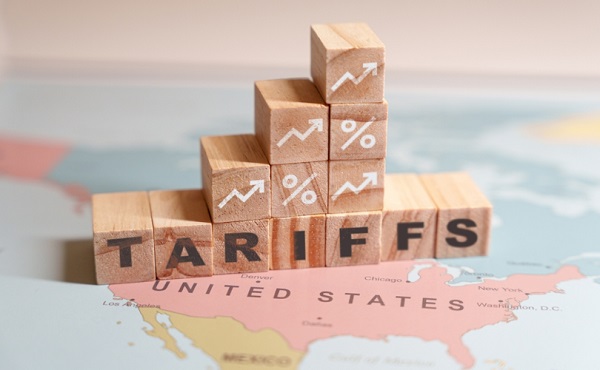
 Business10 hours ago
Business10 hours agoSobering reality check – Trump is right: Canada’s economy can’t survive a fair trade agreement with the US
-
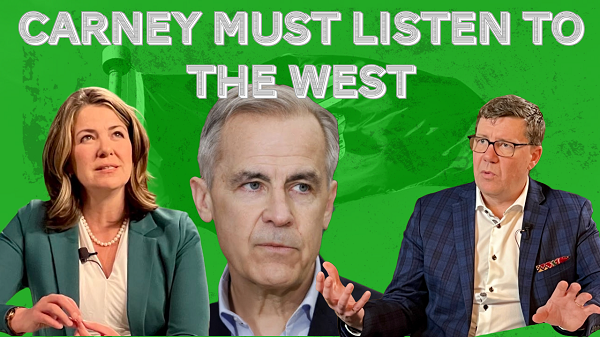
 Business11 hours ago
Business11 hours agoOttawa must listen to the West
-
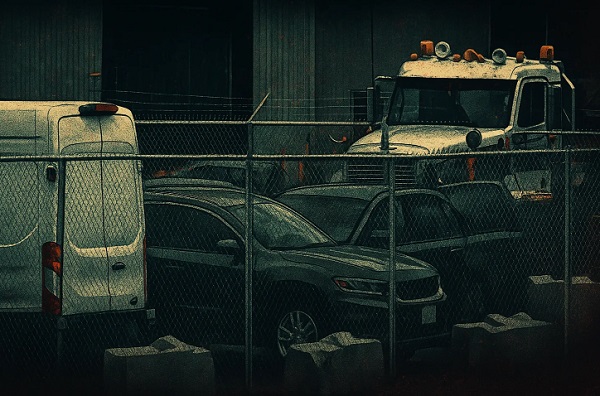
 Crime8 hours ago
Crime8 hours agoMexican Cartels Expanding Operations in Canada, Using Indigenous Reserves as Factory Hubs
-
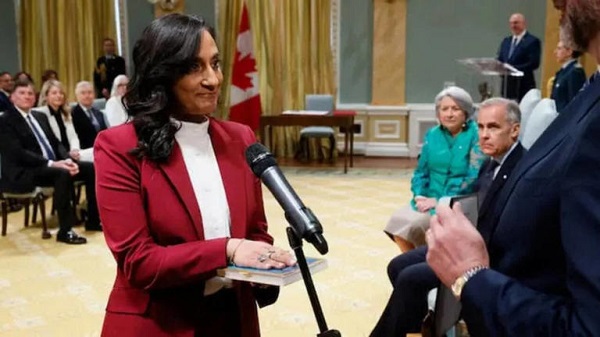
 Fraser Institute12 hours ago
Fraser Institute12 hours agoDeclining stature of foreign affairs minister underscores Canada’s waning influence on world stage
-

 Alberta1 day ago
Alberta1 day agoAlberta’s Environmental Changemakers Shine at the 2025 Emerald Awards
-

 Banks1 day ago
Banks1 day agoLiberal border bill could usher in cashless economy by outlawing cash payments
-
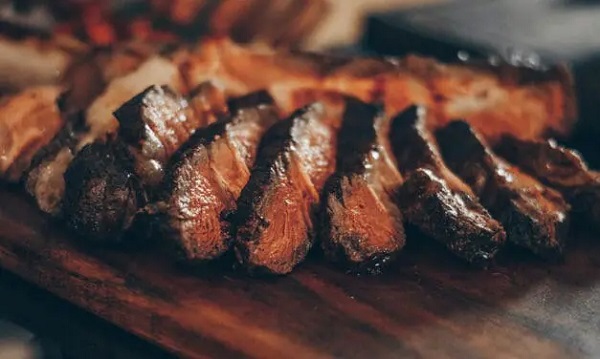
 Business1 day ago
Business1 day agoBeef is becoming a luxury item in Canada



